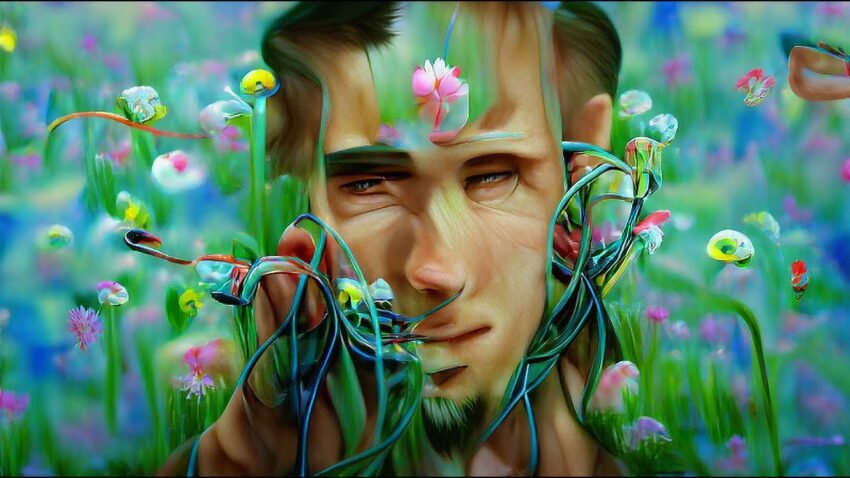[ad_1]
Introduction:
Art has always been a reflection of human creativity and imagination. It has the power to captivate, inspire, and provoke emotions. With the advent of artificial intelligence (AI), a new dimension has been added to the artistic landscape. AI art, created through the collaboration between human artists and advanced algorithms, has opened up exciting avenues for exploring the aesthetics of beauty, chaos, and the machine’s imagination. In this article, we delve into the fascinating world of AI art, examining its aesthetics and the role of the best AI art generators in unleashing its potential.
The Emergence of AI Art:
The fusion of art and technology has given birth to AI art, where machines are programmed to generate artwork based on predefined rules and algorithms. These algorithms can analyze vast amounts of data, learn from patterns, and create unique compositions. AI art generators, such as DeepArt, ArtBreeder, and RunwayML, have become instrumental in facilitating the creative process, enabling artists to harness the power of AI and explore new artistic frontiers.
The Aesthetics of AI Art:
AI art possesses a distinct aesthetic characterized by a unique blend of beauty, chaos, and the machine’s imagination. Through the interaction between human artists and AI algorithms, unexpected and mesmerizing artistic creations come to life. AI has the ability to challenge traditional notions of beauty and disrupt established artistic norms. It can generate intricate patterns, abstract compositions, and surreal imagery that ignite the viewer’s imagination and evoke powerful emotions.
Beauty in AI Art:
AI art has the capacity to create breathtaking visuals that redefine our understanding of beauty. The algorithms can analyze and mimic various artistic styles, from classic masterpieces to contemporary works. By learning from the vast repository of artistic knowledge, AI art generators can generate compositions that possess a harmonious balance of colors, shapes, and textures. The machine’s ability to identify patterns and create aesthetically pleasing arrangements results in visually stunning artwork that can rival the creations of human artists.
Chaos as a Catalyst for Creativity:
While AI can generate visually appealing art, it also has the potential to introduce chaos into the creative process. AI algorithms can disrupt traditional artistic conventions, introducing unexpected elements and unconventional compositions. This element of chaos challenges artists to embrace uncertainty, break free from established patterns, and explore new artistic territories. The fusion of order and chaos in AI-generated art creates a dynamic tension that fuels creativity and expands the boundaries of artistic expression.
The Machine’s Imagination:
AI art generators possess a machine’s imagination, which is distinct from human imagination but equally intriguing. AI algorithms can process vast amounts of data and identify subtle patterns that may go unnoticed by human artists. This machine-driven imagination can lead to the creation of novel and unconventional artwork, showcasing perspectives that may not have been explored before. The machine’s imagination offers a fresh and unique lens through which we can perceive and appreciate art.
The Role of AI Art Generators:
The best AI art generators play a crucial role in facilitating the aesthetics of AI art. They serve as the medium through which human artists can collaborate with AI algorithms to create captivating and thought-provoking artwork. AI art generators provide a platform where artists can input their ideas, preferences, and parameters, and witness the transformative power of AI in translating those inputs into visually stunning compositions. These tools empower artists to explore the aesthetics of beauty, chaos, and the machine’s imagination, expanding their creative horizons.
The Impact of AI Art on the Artistic Landscape:
The emergence of AI art has had a profound impact on the artistic landscape. It has sparked debates about the nature of creativity, the role of machines in artistic expression, and the boundaries of human imagination. Some view AI art as a tool that augments human creativity, enabling artists to push the limits of their imagination. Others raise concerns about the authenticity and emotional depth of AI-generated artwork. Regardless of the viewpoints, AI art has undeniably opened up new possibilities for artistic exploration, redefining aesthetics and expanding the discourse surrounding art.
Conclusion:
AI art has revolutionized the way we perceive and create art. Through the collaboration between human artists and AI algorithms, we have witnessed the emergence of a new aesthetic that embraces beauty, chaos, and the machine’s imagination. AI art generators have played a pivotal role in unleashing the potential of AI in the artistic realm, providing artists with tools to explore uncharted territories and challenge established conventions. As AI continues to evolve, it is poised to further enrich the aesthetics of art, opening doors to new realms of creativity and imagination. The aesthetics of AI art continue to captivate and inspire, inviting us to embrace the beauty and chaos of the machine’s imagination.
Tech World Times (TWT), a global collective focusing on the latest tech news and trends in blockchain, Fintech, Development & Testing, AI and Startups. If you are looking for the guest post then contact at techworldtimes@gmail.com
[ad_2]
